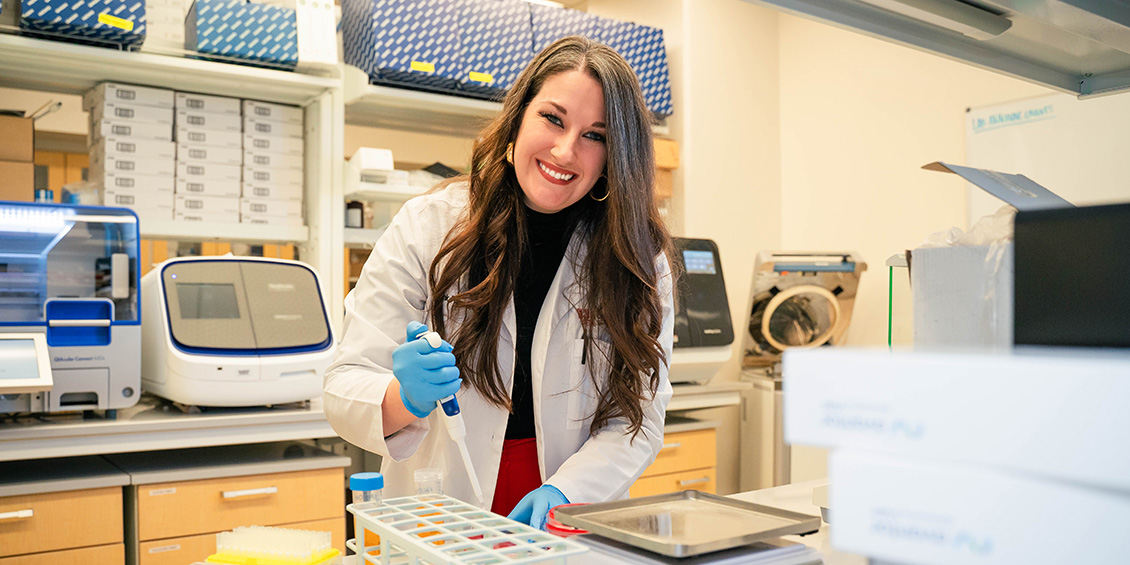Research News
Trusting Your Gut
Eubank Awarded $40K Society of Infectious Diseases Pharmacists Grant to Predict Severity of C. diff Infection
Nov. 25 — The human gastrointestinal system is inhabited by trillions of microorganisms collectively called the "gut microbiome," which helps break down food, absorbs and metabolizes nutrients and acids, and influences the immune system.
While a balanced gut microbiome is crucial for overall health, serious disruptions can occur when beneficial bacteria are overrun by pathogenic invaders – often due to long-term antibiotic use – and spiral into serious diseases such as potentially life-threatening Clostridioides difficile infection (CDI).
Because disease severity can vary greatly due to the uniqueness of the microorganisms and associated DNA that inhabit each person’s gut, new research into the gut microbiome is shedding light on its potential predictive value when assessing CDI severity in patients. Backed by a one-year, $40,000 grant from the Society of Infectious Diseases Pharmacists (SIDP), University of Houston College of Pharmacy Research Assistant Professor Taryn A. Eubank, Pharm.D., BCIDP, is investigating whether colonization by Enterococcus species bacteria during CDI impacts disease severity in hospitalized patients.
"Predicting CDI disease severity is tough, and we hypothesize that incorporating patients’ baseline microbiome composition is the missing piece to having better prediction tools," Eubank said.
Estimated to be present in approximately half of all CDI patients, Enterococcus colonization predicted CDI development more than any other Genus in previous studies. Additionally, a 2022 study published in Nature found that Enterococcus species have been shown to increase C. difficile virulence through production of certain metabolites and cross-feeding.
Eubank’s research findings will provide – for the first time – clinically relevant biomarkers predictive of severe CDI. This has the potential to help practitioners stratify treatment options such as initial CDI antibiotic choice, utilization of microbiome replenishment therapy (fecal microbiome transplant [FMT] or live biotherapeutics), and other life-saving therapies.
"Increasing available information for clinicians at the bedside treating patients with CDI is the goal," Eubank said. "With this study, we hope to find the best predictive biomarker of severe CDI that has potential for rapid diagnostics."
Eubank's mentor for the project is UHCOP Professor and Department Chair Kevin Garey, Pharm.D., M.S., BCIDP, FASHP, FIDSA, FCCP, who also was her mentor during her two-year, T32 Infectious Diseases Pharmacy Fellowship through the Gulf Coast Consortia.
